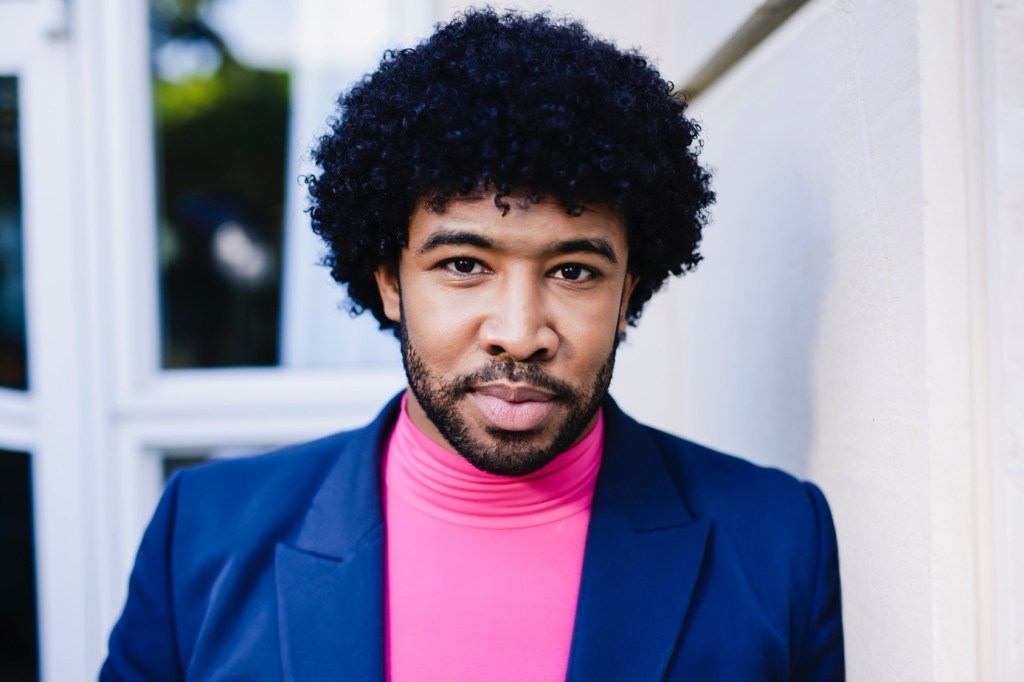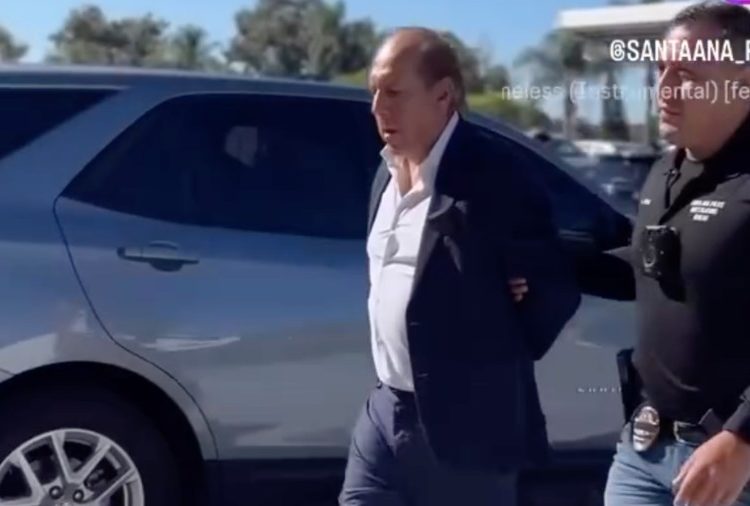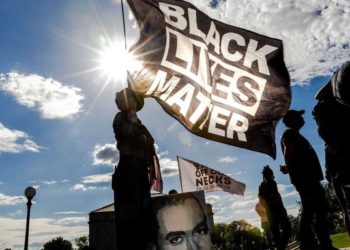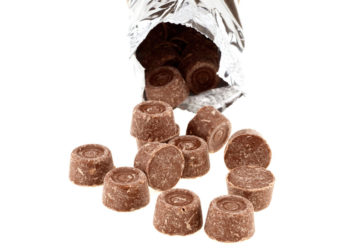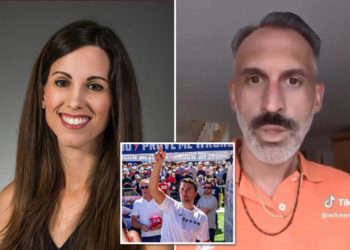This year’s White House Correspondents’ Association dinner will be focused on “journalists and journalism” and in a departure from the past, will include speeches from the association’s annual award winners, according to this year’s president, Eugene Daniels.
The evening at the Washington Hilton not only looks to be a departure from tradition, as there will be no POTUS and no comedian, but will “match the moment that we are living in right now,” Daniels said.
The moment is a fraught time for the press corps and the WHCA itself.
As president, Daniels presided over the transition from the Biden administration to the Trump administration, and while things generally went smoothly in the first couple of weeks, that quickly changed on Feb. 14 when the president’s team announced an indefinite ban on the Associated Press from its slot in the White House pool. The AP sued, with the WHCA supporting the case via a friend of the court brief.
Watch on Deadline
The day after the first hearing in the case, White House Press Secretary Karoline Leavitt announced that the administration, not the WHCA, would take charge of who is in the pool and of other logistics, taking over duties that the independent non-profit has handled for decades.
Although the AP has had some access restored following a judge’s determination that the White House was in violation of the First Amendment, the White House has indicated that it wanted to take other actions, like control over who sits where in the briefing room.
Daniels, who recently moved from Politico to MSNBC, said that there may be unexpected moments of the evening, but cautioned that he didn’t “want to oversell a bunch of surprises.”
“When [the WHCA board was] sitting down, and as the dinner has kind of shifted, and as the world has shifted, the focus [was on] ‘You know what, we should hear from the people who actually do all the work. We should hear from the people who have for years pushed and prodded the presidents, and who are the apex of their careers in getting this award, and we should honor them by giving them center stage.”
Deadline spoke with Daniels on Thursday about what to expect on Saturday, and how he and the WHCA have handled Trump 2.0.
DEADLINE: So a very simple question: What can we expect to see at the dinner?
EUGENE DANIELS: Everyone can expect a dinner that tries to match the moment that we’re living in, that works to match the mood of the press corps, and that is working to fit the need of celebrating the First Amendment, celebrating the award winners, celebrating the scholarship students that are there, and at its core, celebrating the people that go to the White House every single day, holding the most powerful leaders in our country accountable. It’s going to look a little different for folks. … Will there be moments of levity? Maybe. Probably not. Even the videos that we have are more earnest and in a defense of journalism and a celebration of the work that the WHCA does everyday.
DEADLINE: When did it become clear that you had to drop plans for a comedian? [Amber Ruffin was originally set for the dinner.]
DANIELS: Those conversations, that thought process started happening around the time that the White House started blocking the AP. And the reason was because the mood of the press corps, and the feelings that that we felt on the board and that we heard from some of our members. And that just became very obvious as time went on, that at the end of the day, the focus needs to be on the journalists and journalism, and uplifting the folks in that room at a time when not everyone’s feeling uplifted because of the attacks on the press.
DEADLINE: The White House was also out there attacking the comedian as well. Was that a factor?
DANIELS: No. That wasn’t a factor. The White House’s objections to the comedian had nothing to do with our decision. We stand up to the White House all the time. When they make wrong decisions, like kicking the AP out or taking over the pool rotation or getting rid of the wire positions in the pool, the board, the association, our members are not scared of going toe-to-toe with any White House.
DEADLINE: Did you have any advance warning before the press secretary announced that the White House would be taking over the pool selection?
DANIELS: No, no, not at all. When she got behind the lectern and said that she they were taking over the pool, that was the first time that the board had heard of it, that they’d come to that decision.
DEADLINE: I heard some people say, Why didn’t the press just boycott the briefing? Why wasn’t more of a show of unity?
DANIELS: I think that, as a board, because I can speak for the board, we are a member-based organization, and we can do what the members want to do. And so I think I’ll probably maybe leave it there…Many people in the press corps felt like we have to continue to do our jobs, being in the rooms, asking the tough questions, and that won out at the end of the day. … We represent our members, and we, as a board, cannot do things that our members don’t want to do.
DEADLINE: Is there anything that you would have done differently before the White House made this move?
DANIELS: I don’t know what we could have done differently. They didn’t come to us and ask us. They didn’t tell us, ‘Hey, you know, let’s talk about this pool. Let’s see what we can do here.’ We were just as surprised as everyone else. So there was nothing else for us to do.
DEADLINE: There were some members who said it feels like everyone is just on their own. What was your response to that? [Andrew Feinberg, correspondent for The Independent, expressed concerns over print outlets’ access to accurate and timely pool reports].
DANIELS: I don’t want to talk about my response to Andrew Feinberg. What he was talking about was a print pool email. He wasn’t talking about whether folks wanted to protest. And people never missed out on the print pool notes, so folks were never on their own. The board has worked diligently, all nine members, on a volunteer basis to fight for more access, and that has continued even as the relationship has changed with the White House.
DEADLINE: What other issues, the seating. Do you know what the status of seating in the briefing room?
DANIELS: That’s a question for the White House.
[As reports surfaced that the White House was considering such a move, the WHCA board released a statement saying that the administration was trying to “cynically seize control of the system through which the independent press organizes itself, so that it is easier to exact punishment on outlets over their coverage.”]
DEADLINE: The thing about the pool is there are incredible amount of logistics involved in that. What’s your assessment on how the White House has handled that?
DANIELS: The reason that for years, the White House Correspondents’ Association board, and … people who are our pool chairs have been operating the pool logistics and all of the other logistics, is because it’s important. And if White Houses have believed this too, that the people that are being covered do not choose who covers them. I’m not going to kind of judge how good or bad the White House logistics are. What I will say is that the no one understands the needs of the correspondents, videographers, audio techs, radio correspondents, producers, wire reporters, like the people who are their actual colleagues. Anyone who would suggest that the WHCA’s control of the logistics was bad is just completely inaccurate. We have for decades, been able to see beyond the next angles, knowing all of the institutional knowledge that’s on the board and within the membership, knowing what could happen on any type of trip, and there’s no replacing that.
DEADLINE: What do you think the impact has been with the White House in control the pool? At the court hearing for the AP’s case, Zeke Miller was asked that question and said, Oh, there is a difference in the type of questions that the president is getting.
DANIELS: I am not going to speak to what my friend Zeke said. But what I will say is that the board stance has always been a question of addition and not subtraction. So the White House has been adding people for years into pools that they maybe liked more than us, who are going to ask different questions. And we never fought that. It’s addition, not subtraction. What we’re talking about here is something completely different. And so what you have is the government choosing the people who ask the questions of the president. What I have been heartened by is that despite all of these attacks, the members of our association continue to ask hard-hitting questions, probing questions, questions that the American people deserve to have answers to, to the president of the United States, to his aides, to the people who you know walk down the driveway of the White House and do gaggles, members of the President’s Cabinet. That has not stopped. But yes, there is a sprinkling of other types of questions but I will let other people speak to that.
DEADLINE: The administration keeps saying this is the most transparent White House in history. I hear that from Karoline Leavitt a lot. Do you agree with that?
DANIELS: I’m 36 years old, and I was not here when George Washington was president, so I can’t speak to that. We see President Trump a lot, right? We hear from President Trump a lot. That isn’t a question, and that’s not something that the WHCA has opposed in any new way, shape or form.
DEADLINE: Leavitt also has made a point of having a new media seat and more reporters, more podcasters in the briefing room. What do you think has been the impact of that?
DANIELS: As you can see every single day that they have a press briefing, our folks still ask the same tough questions, no matter who else is in the room. I don’t really know how to answer that question, because at the end of the day, again, it was a question of addition, not subtraction. Our folks are still in the room asking the tough questions, and that’s what matters.
DEADLINE: You also moved from Politico to MSNBC, which has been a target of the president, has that, has that had an impact at all, on on how the administration treats you.
DANIELS: The president attacked Politico as well, just to be very clear, on Truth Social and otherwise. I think at the end of the day, it doesn’t matter. What people say about me and how they treat me is not my focus. My focus is on making sure that folks within the membership do what they need to do the jobs that they wake up every day to do. Personal pot shots at me are never going to stop me from advocating, supporting and defending the members of our association and the association itself.
The post Deadline Q&A: WHCA President Eugene Daniels Talks About This Year’s Dinner And The Press Corps’ Response To Trump 2.0’s Attacks On News Media appeared first on Deadline.
